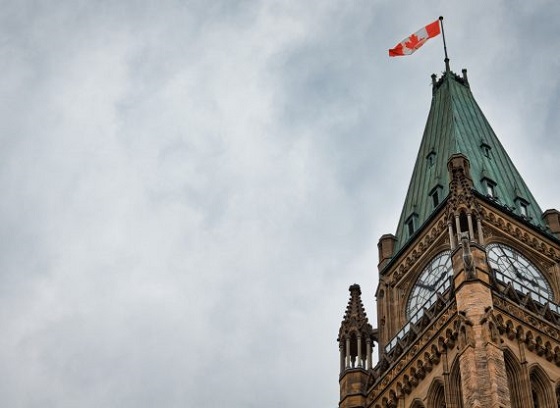Energy
The environmental case for Canadian LNG

From Resource Works
Canada’s new prime minister has made some encouraging pronouncements recently about making Canada an energy superpower – a pledge repeated by King Charles in Tuesday’s throne speech.
Canada’s new prime minister has made some encouraging pronouncements recently about making Canada an energy superpower — a pledge repeated by King Charles in Tuesday’s throne speech.
Mark Carney, through the King, made the clarion call to make Canada “the world’s leading energy superpower in both clean and conventional energy.”
But how can Canada increase oil and gas production and exports while adhering to its green ambitions of net zero by 2050?
Two reports out last week — one from the Fraser Institute, the other from the Pembina Institute — help make a case for the net environmental benefits of a Canadian LNG export industry.
The Fraser Institute’s Exporting Canadian LNG to the World cites three B.C.-specific GHG life cycle models of coal-to-gas switching to conclude that, if LNG exports from B.C. replaced coal power in China, greenhouse gas emissions there could be reduced 34% to 62%.
If Canada were to double its current natural gas production and export it to Asia, “global GHG emissions could be reduced by up to 630 million tonnes annually,” the report asserts.
Canada’s total GHG emissions in 2023 was 694 million tonnes, according to Environment Canada. So, according to the Fraser Institute’s math, the equivalent of Canada’s total GHG emissions could be almost entirely erased, simply by exporting LNG to China to displace coal.
There’s a couple of flies in this ointment, which I’ll get to shortly, but the argument that there would be net environmental benefits to Canadian LNG exports still holds up, I think.
Coal accounts for about 45% of global emissions from fuel combustion, according to the International Energy Agency (IEA).
Switching from coal to natural gas in thermal power generation can result in a 50% reduction in CO2 emissions, according to the Intergovernmental Panel on Climate Change (IPCC).
But natural gas isn’t just a cleaner fuel, it’s also a critical feed stock — for which there is no real substitute — for an array of industrial and petrochemical processes, including fertilizer production. Like it or not, there will be a demand for natural gas for decades to come, and Canada is demonstrating that it can produce it with much lower emissions intensity than almost anyone else.
That natural gas can reduce emissions when it displaces coal is not theoretical — there’s proof. In the U.S., a 32% decrease in CO2 emissions between 2005 and 2019 in the power sector was attributed largely to coal-to-gas fuel switching, according to the Energy Information Administration (EIA).
“Lower CO2 emissions have largely been a result of a shift from coal to natural gas in the electricity generation mix,” the EIA concludes.
Now for the flies in the ointment.
First, while there could indeed be sizable global emissions reductions if Canadian LNG displaced coal power in China, India and other parts of Asia, we couldn’t claim those reductions under the current Paris Agreement model.
(Nota bene: Donald Trump is once again withdrawing the U.S. from the Paris Agreement, and the U.S. — now the world’s biggest LNG exporter — has no compunction over gobbling up as much LNG market share as it can.)

Canada and China are both signatories to the Paris Agreement. Each country produces its own climate action plans — nationally determined contributions — and can only count emissions reductions within its own national borders.
We can’t claim Chinese emissions reductions for our own, even if it were the result of Canadian LNG imports.
There has been talk of Internationally Transferred Mitigation Outcomes (ITMOs) that would allow Canada to be credited for emissions reduced in China from coal displacement through LNG. I don’t know why China, having achieved emissions reductions through coal-to-gas fuel switching, would surrender those reductions to Canada.
Achieving some win-win ITMO agreement would take some fancy bargaining, and perhaps Mark Carney is up to this task. He knows a thing or two about these sorts of things, having served as the UN’s special envoy on climate action and finance.
But even if ITMOs are not possible for Canadian LNG exports, there are still compelling economic and environmental arguments for Canada to act on its strengths — abundant resources, high demand for those resources, and comparatively high environmental standards.
Anti-fossil fuel activists will, of course, continue to trot out the canard that LNG is as bad, if not worse, than coal, because of the methane associated with upstream natural gas production.
It’s true that methane is the Achilles heel of natural gas and LNG. Because of its high global warming potential, even small amounts of methane — leakage rates of 2% or more — can begin to negate natural gas’s lower CO2 intensity.
Fortunately, methane leakage can be addressed through better plumbing, best practices, regulations, and better monitoring, and as the Pembina Institute points out, B.C.’s natural gas sector has leading the way here.
According to the BC Energy Regulator, measurements completed in 2021 estimate the methane intensity of B.C. natural gas production at just 0.38% to 0.48%, which is well below the 1.1% to 1.8% ceiling set for methane intensity in oil and gas production.
The result of this work on methane abatement is that B.C. has met its methane reduction targets for oil and gas two years ahead of schedule, according to the Pembina Institute.
Between 2014 and 2023, B.C. natural gas production grew 67 per cent, while methane emissions from oil and gas production fell by 51 per cent, the Pembina Institute notes in its report, Raising the Bar.
“B.C.’s success offers yet more evidence that methane emissions can be tackled without impeding the oil and gas industry’s operations,” Amanda Bryant, senior analyst for Pembina Institute, says in a press release accompanying the report.
“If anything, given the number of countries now considering new import standards that will privilege low-emissions energy products, stringent methane regulations – backed by transparent, best-in-class measurement data – are going to be key in bolstering the global competitiveness of our oil and gas sector.”
It must be added that, in addition to lower methane intensities, natural gas and LNG produced in B.C. also has lower CO2 intensities, thanks to electrification of the upstream and of some of the planned LNG plants. China, India, Japan, South Korea and other Asia Pacific nations will continue to buy natural gas and LNG from someone for years to come.
Shouldn’t that someone be Canada?
Daily Caller
UN Chief Rages Against Dying Of Climate Alarm Light


From the Daily Caller News Foundation
The light of the global climate alarm movement has faded throughout 2025, as even narrative-pushing luminaries like Bill Gates have begun admitting. But that doesn’t mean the bitter clingers to the net-zero by 2050 dogma will go away quietly. No one serves more ably as the poster child of this resistance to reality than U.N. chief Antonio Guterres, who is preparing to host the UN’s annual climate conference, COP30, in Brazil on Nov. 10.
In a speech on Monday, Guterres echoed poet Dylan Thomas’s advice to aging men and women in his famed poem, “Do not go gentle into that good night:”
Do not go gentle into that good night,
Old age should burn and rave at close of day;
Rage, rage against the dying of the light.
Dear Readers:
As a nonprofit, we are dependent on the generosity of our readers.
Please consider making a small donation of any amount here.
Thank you!
Though wise men at their end know dark is right,
Because their words had forked no lightning they
Do not go gentle into that good night.
Seeing that his own words have “forked no lightning,” Guterres raged, raged against the dying of the climate alarm light.
“Governments must arrive at the upcoming COP30 meeting in Brazil with concrete plans to slash their own emissions over the next decade while also delivering climate justice to those on the front lines of a crisis they did little to cause,” Guterres demanded, adding, “Just look at Jamaica.”
Yes, because, as everyone must assuredly know, the Earth has never produced major hurricanes in the past, so it must be the all-powerful climate change bogeyman that produced this major storm at the end of an unusually slow Atlantic hurricane season.
Actually, Guterres’ order to all national governments to arrive in Belem, Brazil outfitted with aspirational plans to meet the net-zero illusion, which everyone knows can and will never be met, helps explain why President Donald Trump will not be sending an official U.S. delegation. Trump has repeatedly made clear – most recently during his September speech before the U.N. General Assembly – that he views the entire climate change agenda as a huge scam. Why waste taxpayer money in pursuit of a fantasy when he’s had so much success pursuing a more productive agenda via direct negotiations with national leaders around the world?
“The Green New Scam would have killed America if President Trump had not been elected to implement his commonsense energy agenda…focused on utilizing the liquid gold under our feet to strengthen our grid stability and drive down costs for American families and businesses,” Taylor Rogers, a White House spokeswoman, said in a statement to the Guardian. “President Trump will not jeopardize our country’s economic and national security to pursue vague climate goals that are killing other countries,” she added.
The Guardian claims that Rogers’s use of the word “scam” refers to the Green New Deal policies pursued by Joe Biden. But that’s only part of it: The President views the entire net-zero project as a global scam designed to support a variety of wealth redistribution schemes and give momentum to the increasingly authoritarian forms of government we currently see cracking down in formerly free democracies like the U.K., Canada, Germany, France, Australia and other western developed nations.
Trump’s focused efforts on reversing vast swaths of Biden’s destructive agenda is undoing 16 years of command-and-control regulatory schemes implemented by the federal government. The resulting elimination of Inflation Reduction Act subsidies is already slowing the growth of the electric vehicles industry and impacting the rise of wind and solar generation as well.
But the impacts are international, too, as developing nations across the world shift direction to be able to do business with the world’s most powerful economy and developed nations in Europe and elsewhere grudgingly strive to remain competitive. Gates provided a clear wake-up call highlighting this global trend with his sudden departure from climate alarmist orthodoxy and its dogmatic narratives with his shift in rhetoric and planned investments laid out in last week’s long blog post.
Guterres, as the titular leader of the climate movement’s center of globalist messaging, sees his perch under assault and responded with a rhetorical effort to reassert his authority. We can expect the secretary general to keep raging as his influence wanes and he is replaced by someone whose own words might fork some lightning.
David Blackmon is an energy writer and consultant based in Texas. He spent 40 years in the oil and gas business, where he specialized in public policy and communications.
Daily Caller
US Eating Canada’s Lunch While Liberals Stall – Trump Admin Announces Record-Shattering Energy Report


From the Daily Caller News Foundation
By Audrey Streb
The Department of Energy (DOE) touted a report on Wednesday which states that America broke records in liquefied natural gas (LNG) exports.
The U.S. became the first country to export over 10 million metric tonnes of LNG in one month in October, Reuters reported on Monday, citing preliminary data from the financial firm LSEG. The DOE posted on X on Wednesday that “there are big opportunities ahead for U.S. natural gas” and has consistently championed LNG in a sharp departure from former President Joe Biden’s crackdown on the resource.
“The fact that America’s oil and gas industry was able to pass this stunning milestone is impressive considering all the roadblocks to progress which were thrown up by the Biden administration,” David Blackmon, an energy and policy writer who spent 40 years in the oil and gas business, told the Daily Caller News Foundation. “It is a testament to both the resilience and innovative mindset of the industry and to the phenomenal wealth of America’s natural gas resource.”
Dear Readers:
As a nonprofit, we are dependent on the generosity of our readers.
Please consider making a small donation of any amount here.
Thank you!
🗣️RECORD BREAKING: For the first time, U.S. LNG exports are projected to surpass 10 million metric tons in a single month. There are big opportunities ahead for U.S. natural gas!
— U.S. Department of Energy (@ENERGY) November 5, 2025
Two facilities in Louisiana and Texas are responsible for the LNG export surge, according to Reuters. The U.S. LNG industry emerged as an energy sector giant in recent decades, with America now leading the world in LNG exports after being projected to be a net importer as late as 2010, according to S&P Global.
The Biden administration enacted a freeze on new LNG export permits and “intentionally buried a lot of data and released a skewed study to discredit the benefits of American LNG,” the DCNF previously reported. The environmental lobby applauded Biden’s January 2024 freeze on new LNG export terminals, though critics argued that the policy stalled investment, would not reduce emissions and undermined America’s global strategic interests.
In contrast, President Donald Trump sought opportunities to bolster LNG and reversed the new permit pause through a day-one executive order. Some energy policy experts told the DCNF that the reported milestone highlights the resiliency of the industry and the benefit of Trump’s “American energy dominance” agenda.
-

 Agriculture2 days ago
Agriculture2 days agoDanish Cows Collapsing Under Mandatory Methane-Reducing Additive
-

 Alberta2 days ago
Alberta2 days agoAlberta government’s plan will improve access to MRIs and CT scans
-

 Business2 days ago
Business2 days agoNo Jobs Clause: Liberals Under Fire Over Stellantis Deal in Fiery Committee Showdown
-

 Economy2 days ago
Economy2 days agoWelcome to the Energy Humanist Club! Bill Gates breaks the moral monopoly against fossil fuels
-

 Business1 day ago
Business1 day agoBudget 2025 continues to balloon spending and debt
-

 Censorship Industrial Complex1 day ago
Censorship Industrial Complex1 day agoHow the UK and Canada Are Leading the West’s Descent into Digital Authoritarianism
-

 Business1 day ago
Business1 day agoCapital Flight Signals No Confidence In Carney’s Agenda
-

 Business1 day ago
Business1 day agoFederal budget: Carney government posts largest deficit in Canadian history outside pandemic






